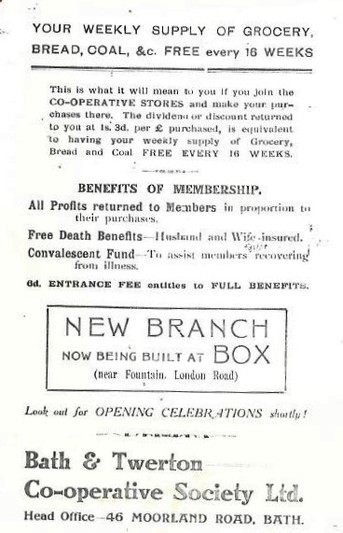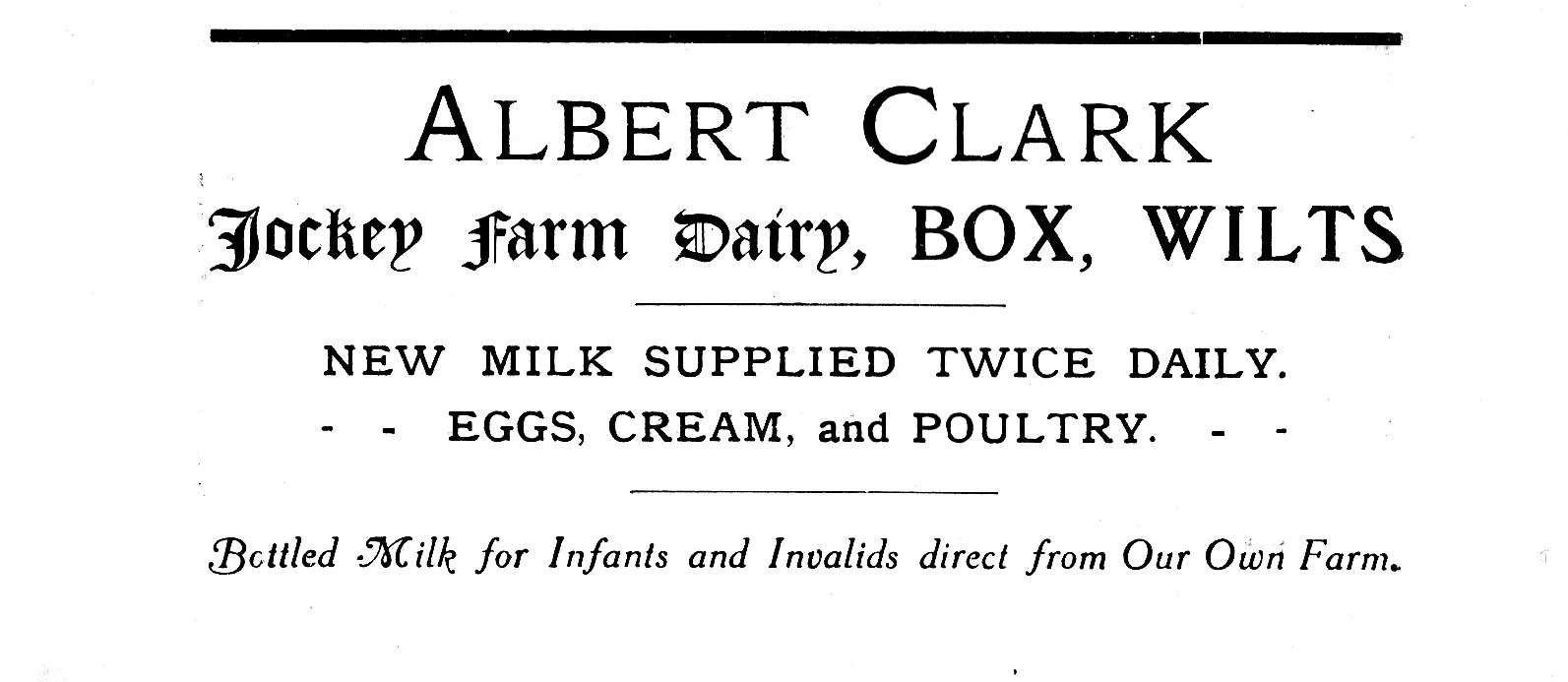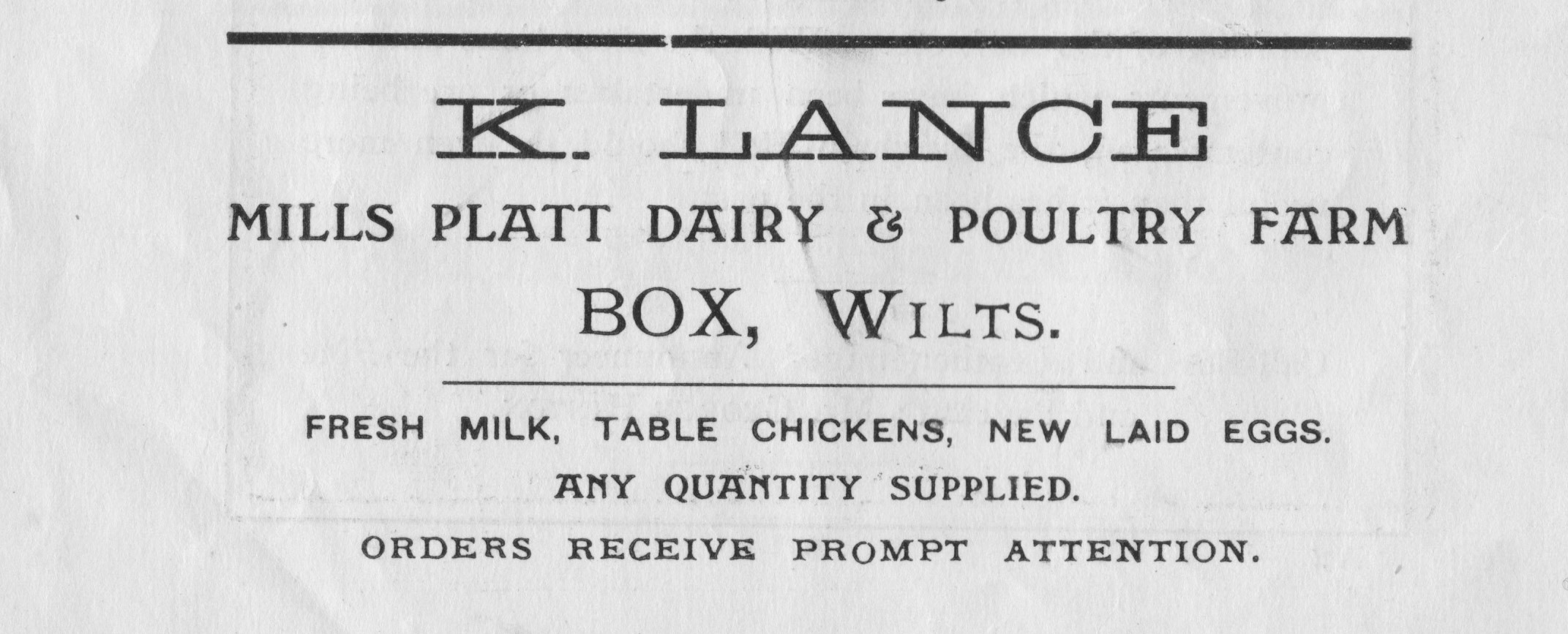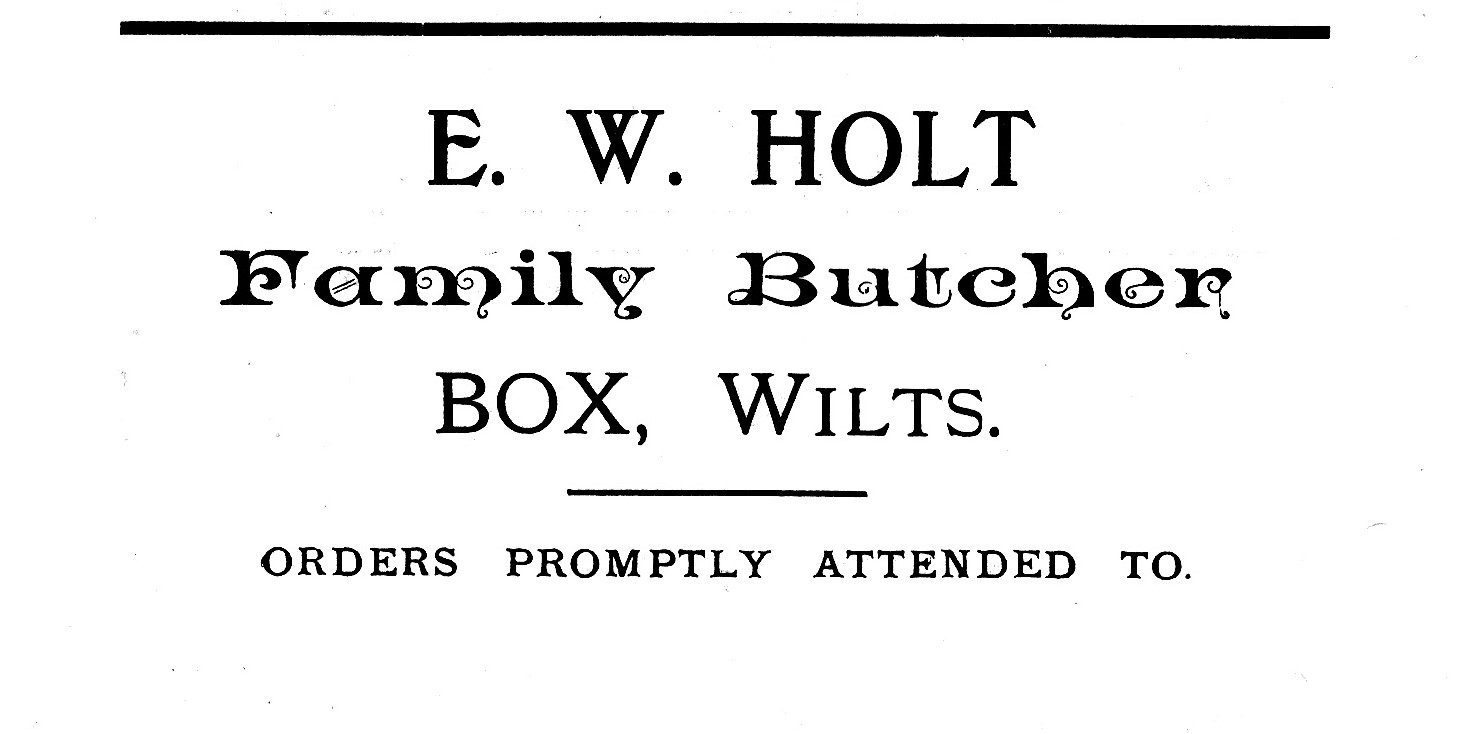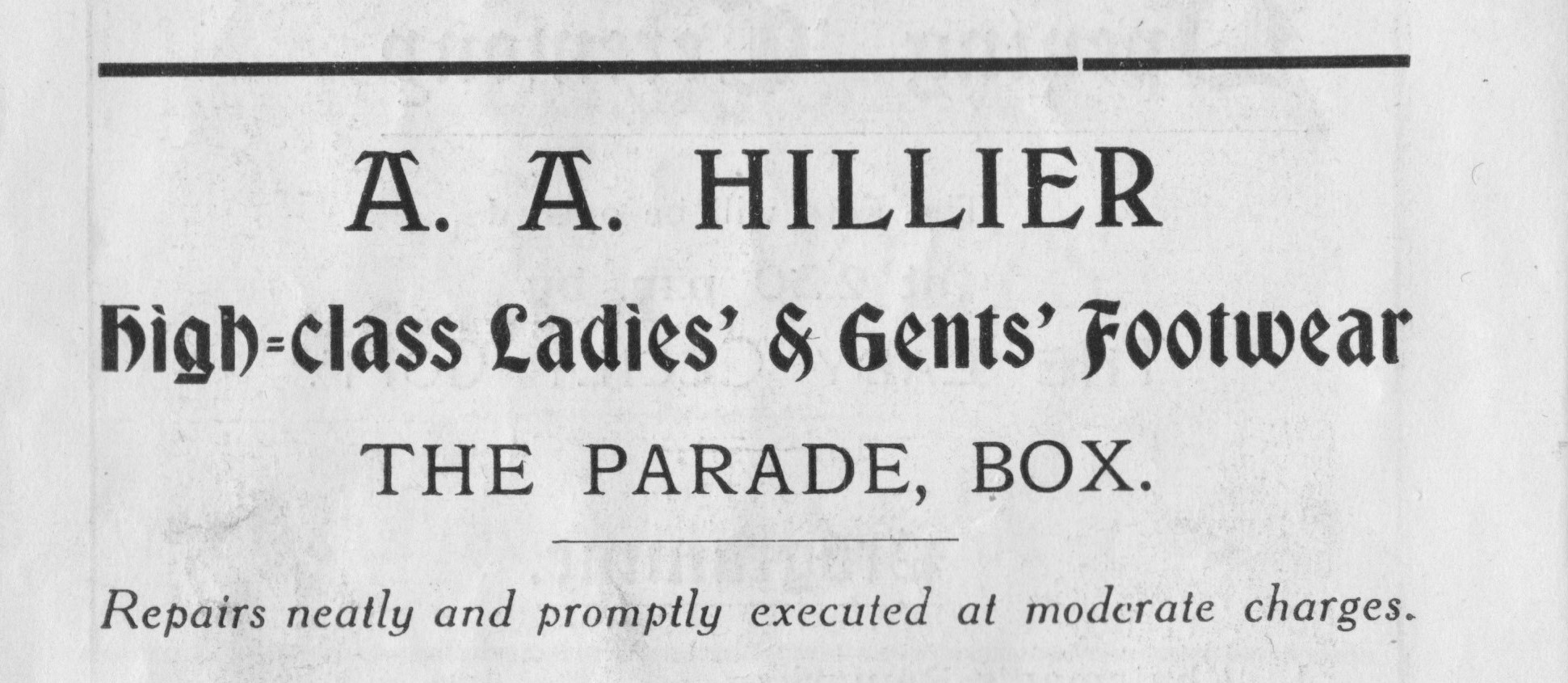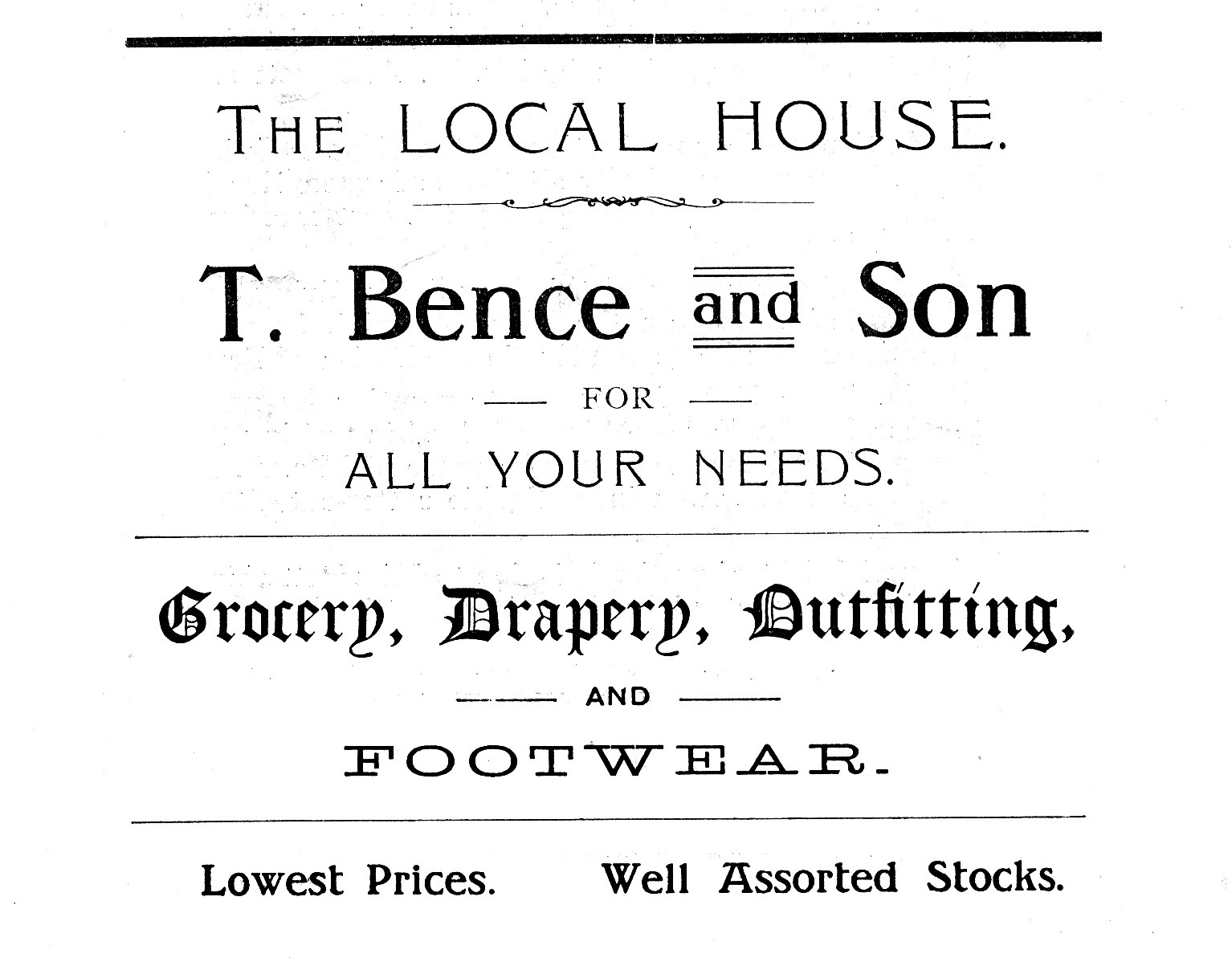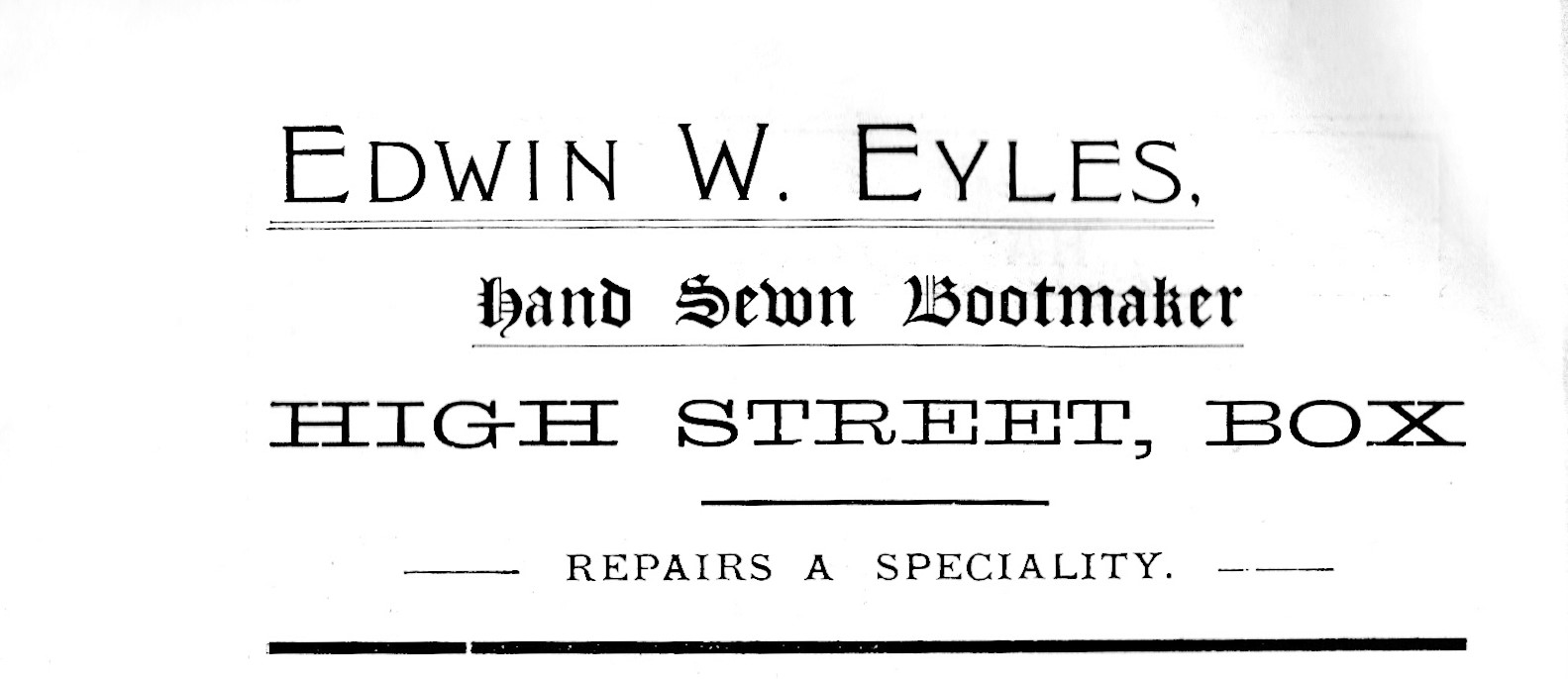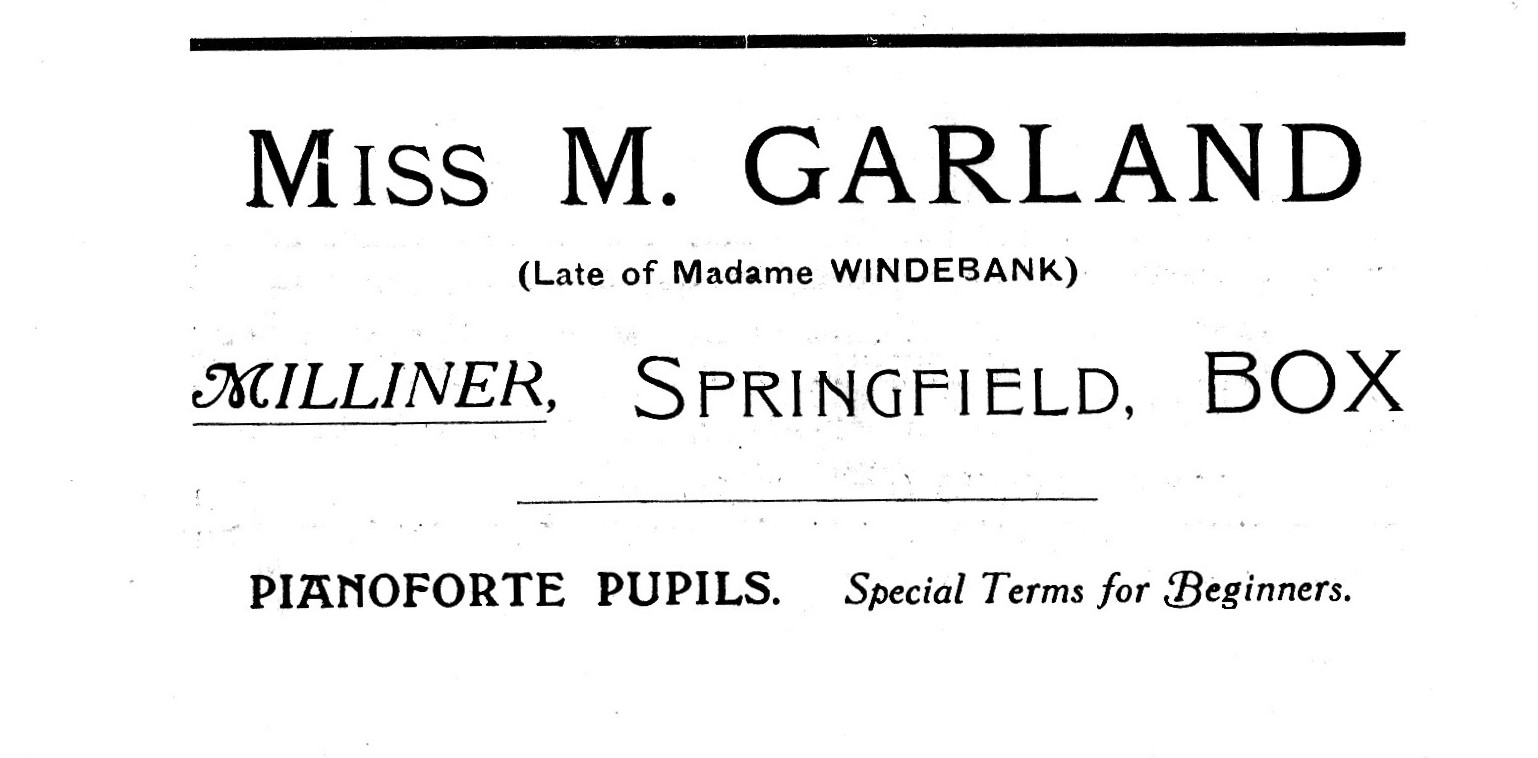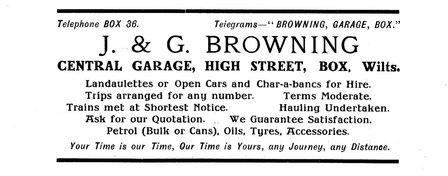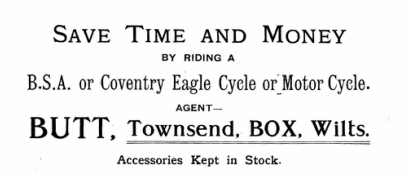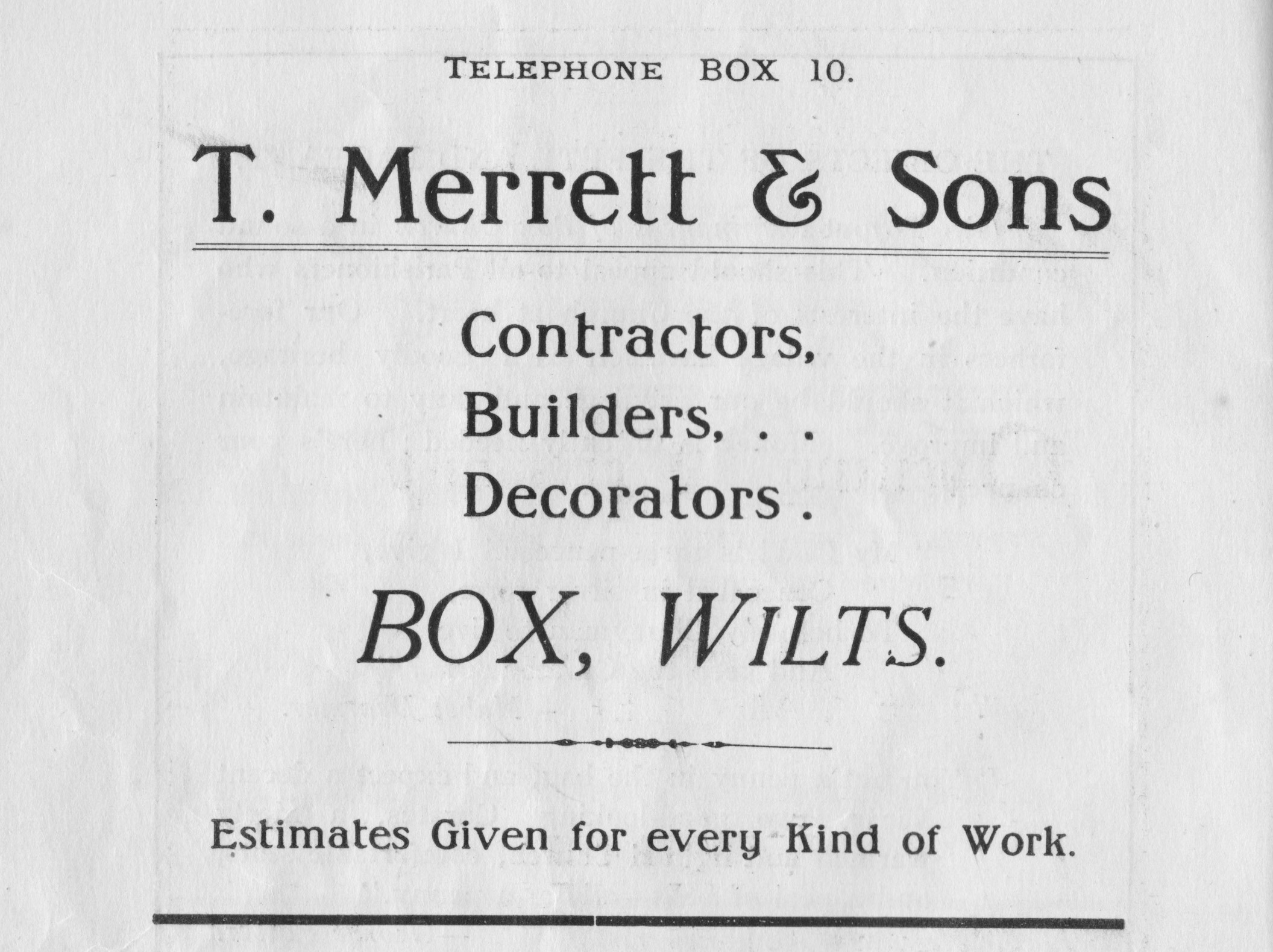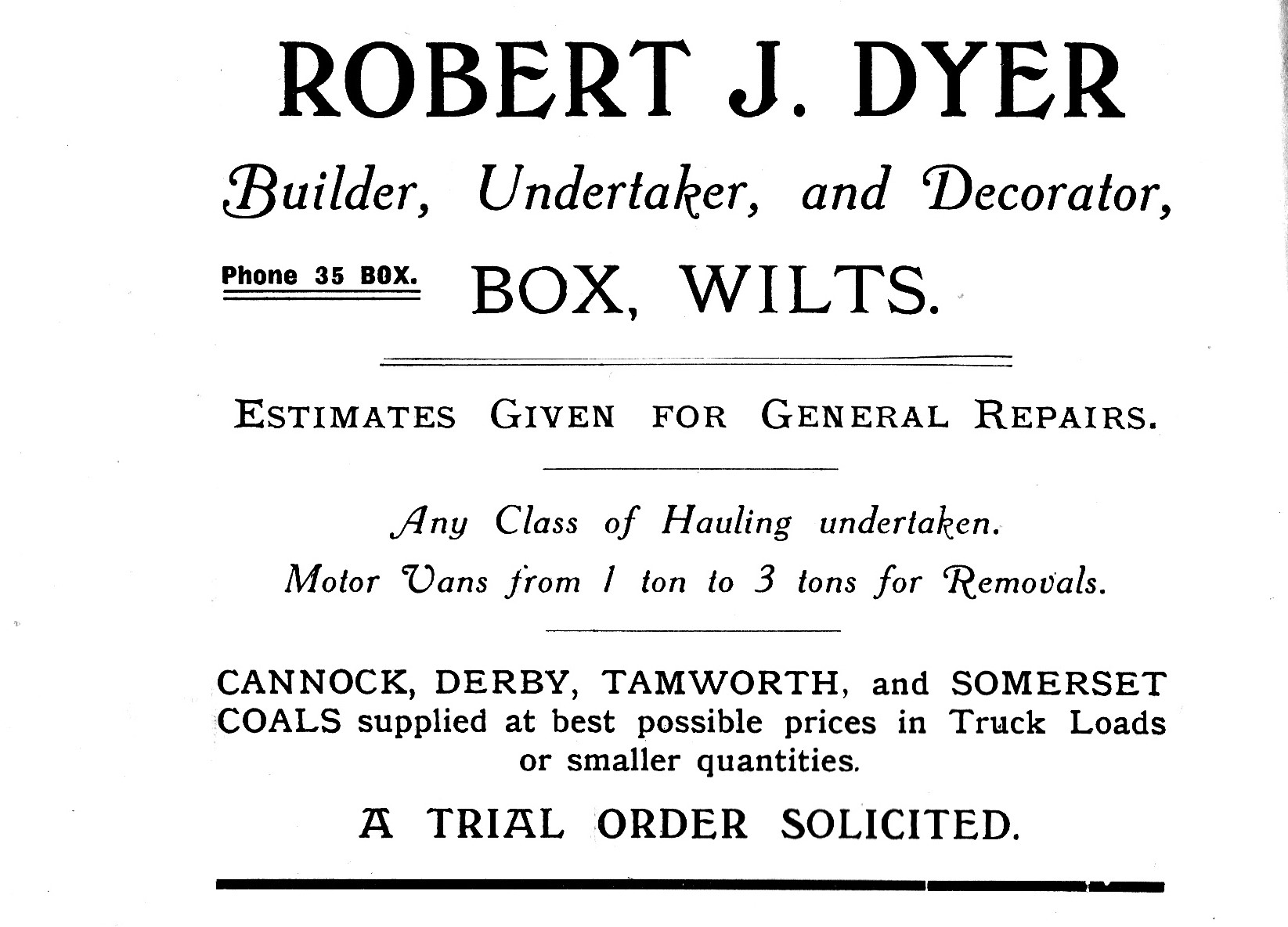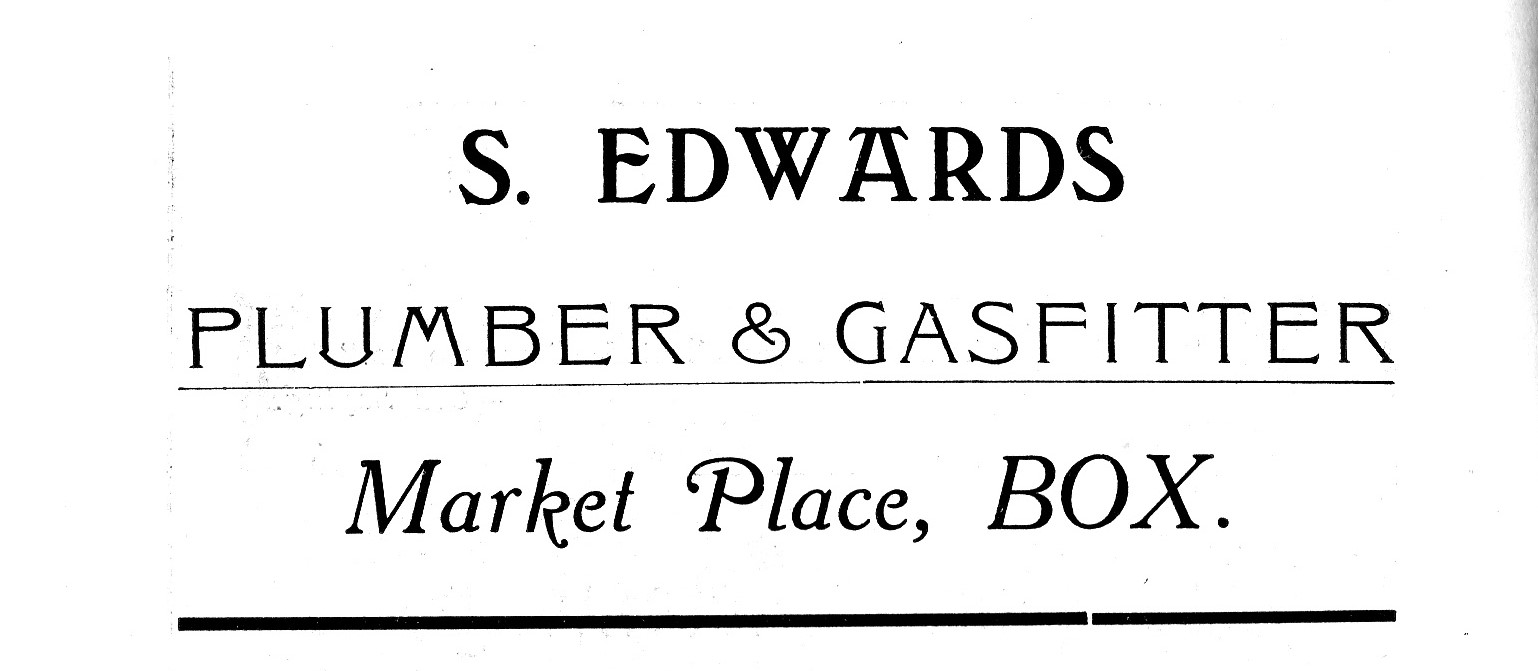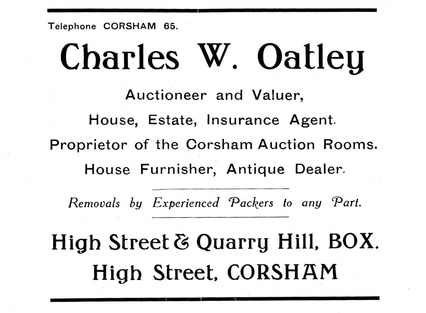|
Box Shops 1920s
Images courtesy Mike Curd and Clive Banks January 2017 Now that the Co-operative Shop in the centre of Box has closed, we are recounting its story and that of shops in Box as illustrated in the 1925 Box Pageant brochure. In that year, the Bath & Twerton Co-operative Society was building its shop on the site on the High Street previously occupied by the chimney of Box Brewery and the cottage called Clock House. From the outset, the shop was intended for the whole community of Box. In 1928 it organised a children's fete when 170 youngsters progressed from the shop to a nearby field led by the Colerne Brass Band where they played hoop-la, cokernut (sic) shy, and flat and sack races.[1] Mesdames Little and Moody of the Box Women's Co-operative Guild served tea in a marquee and an evening concert was put on in the tent including a Frolics Concert Party from Bath . Great assistance was given by Mr Meads, the manager of the new Co-op store. |
Shopping Habits in 1925
The number of shops in the village has reduced greatly over the last few decades. Many people have a car which enables them to travel to specialist shops in larger towns and cities. For others there are home deliveries and the internet. This wasn't so in the 1920s when local shops were vital in supplying preserved foods, footwear, clothing and basic necessities like candles, matches and crockery.
The 1915 Kelly's Directory recorded 52 businesses in the central Box area, of which 41 appear to have had shop premises open to the public selling goods and services. Some of these vendors have disappeared almost entirely such as wheelwrights, coal merchants, dairyman and saddle and harness maker. Others we still recognise but not always their methods of retailing.
The number of shops in the village has reduced greatly over the last few decades. Many people have a car which enables them to travel to specialist shops in larger towns and cities. For others there are home deliveries and the internet. This wasn't so in the 1920s when local shops were vital in supplying preserved foods, footwear, clothing and basic necessities like candles, matches and crockery.
The 1915 Kelly's Directory recorded 52 businesses in the central Box area, of which 41 appear to have had shop premises open to the public selling goods and services. Some of these vendors have disappeared almost entirely such as wheelwrights, coal merchants, dairyman and saddle and harness maker. Others we still recognise but not always their methods of retailing.
Fresh Foods
Today we would be surprised to have to leave an order before we could buy milk, meat and eggs. But it was the delivery of these goods, particularly to outlying hamlets, that was the common method of buying fresh produce. In addition to the shops in the centre of the village, most of the outlying hamlets had local stores for people who had no transport into the centre.
Today we would be surprised to have to leave an order before we could buy milk, meat and eggs. But it was the delivery of these goods, particularly to outlying hamlets, that was the common method of buying fresh produce. In addition to the shops in the centre of the village, most of the outlying hamlets had local stores for people who had no transport into the centre.
Clothing and Footwear
Nowadays we often have to go to far afield to buy clothes as even Corsham and Chippenham have limited ranges. The difference between the 1920s and now is that we tend to buy off-the-peg clothes rather than bespoke items. Few of us today would dream of asking the shoe shop to make a pair of boots specifically for our foot size.
Nowadays we often have to go to far afield to buy clothes as even Corsham and Chippenham have limited ranges. The difference between the 1920s and now is that we tend to buy off-the-peg clothes rather than bespoke items. Few of us today would dream of asking the shoe shop to make a pair of boots specifically for our foot size.
Modern Facilities
At first glance these advertisements appear to be rather modern but look again. Brownings Garage offered various styles of vehicles but in open, not covered, cars: landaulettes (convertibles) and char-a-bancs (open coaches). Mr Butt had his shop at Townsend before he moved to The Parade, repairing motor- and push-bikes.
Obviously there were no mobile phones and, indeed, only a few businesses had a telephone number. T Merrett & Sons were connected to the exchange at an early date and their number was Box 10, to which you asked the telephone operator to connect you.
At first glance these advertisements appear to be rather modern but look again. Brownings Garage offered various styles of vehicles but in open, not covered, cars: landaulettes (convertibles) and char-a-bancs (open coaches). Mr Butt had his shop at Townsend before he moved to The Parade, repairing motor- and push-bikes.
Obviously there were no mobile phones and, indeed, only a few businesses had a telephone number. T Merrett & Sons were connected to the exchange at an early date and their number was Box 10, to which you asked the telephone operator to connect you.
Beginning of New Era
The use of coal for domestic heating and cooking was relatively common in the 1920s Box. Robert J Dyer promoted his business as Builder, Undertaker and Decorator but the most intriguing part of his advertisement was the variety of different types of coal on offer Cannock, Derby, Tamworth and Somerset. Rarer still was the use of gas (towngas manufactured as a by-product from the manufacture of coke) which kept Mr S Edwards in employment.
The coming of a new shop, the Bath and Twerton Co-operative Society shop, on the London Road, promoted a weekly purchase of grocery, bread and coal free every sixteenth week.
The use of coal for domestic heating and cooking was relatively common in the 1920s Box. Robert J Dyer promoted his business as Builder, Undertaker and Decorator but the most intriguing part of his advertisement was the variety of different types of coal on offer Cannock, Derby, Tamworth and Somerset. Rarer still was the use of gas (towngas manufactured as a by-product from the manufacture of coke) which kept Mr S Edwards in employment.
The coming of a new shop, the Bath and Twerton Co-operative Society shop, on the London Road, promoted a weekly purchase of grocery, bread and coal free every sixteenth week.
Other Traders
Some businesses have scarcely changed over the last century. We have a few pubs still operating, the Post Office and newsagent remains very similar. Perhaps the trade of auctioneer has remained the same, albeit no longer operating from Quarry Hill.
Some businesses have scarcely changed over the last century. We have a few pubs still operating, the Post Office and newsagent remains very similar. Perhaps the trade of auctioneer has remained the same, albeit no longer operating from Quarry Hill.
Reference
[1] Bath Chronicle and Herald, 1 September 1928
[1] Bath Chronicle and Herald, 1 September 1928
